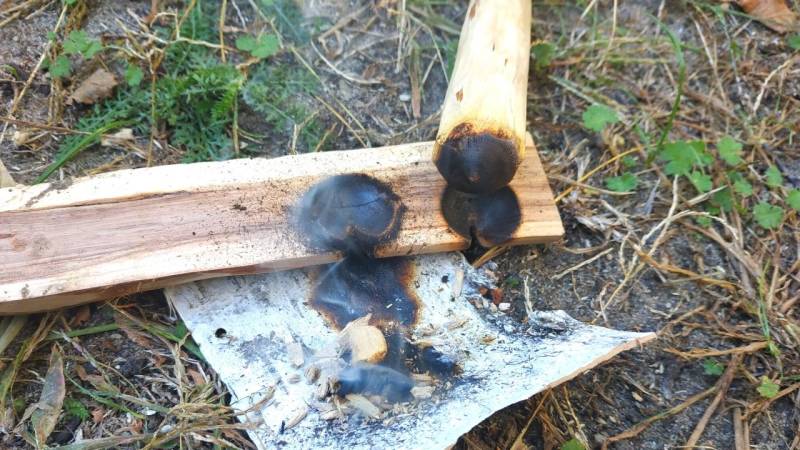
18 breathtaking ways to start a fire without a lighter or matches
👉 The key facts from this guide
- There are various methods to ignite a fire without a lighter or matches, including using a Firesteel, magnesium block, battery, magnifying glass, bow drill, and more.
- Preparation is crucial when igniting a fire. This includes collecting tinder, kindling, and firewood.
- The choice of tinder is important, as it needs to be very fine and dry to effectively catch sparks or embers.
- The method of fire ignition may vary depending on the available resources and environment.
- Safety should always be a priority when attempting to ignite a fire, especially when using dangerous methods such as chemicals or flare guns.
Fire is a magnificent invention of nature.
Starting a fire is one of the most basic skills in life.
And it is essential when you are in the wilderness.
It protects you, dries your shoes, and gives you courage.
But how do you make a fire if you do not have a lighter or matches?
There are actually many ways. Some are immediately apparent, and some are curious.
Today, you will learn 18 ways to start a fire without a lighter or matches.
How do you make a fire without a lighter?
Sparks flew as the mysterious man struck the iron against the flint.
I watched, transfixed, as the glowing particles fell onto the charred cotton and caused it to glow.
With a few targeted movements, the stranger ignited a small ember, which he carefully fanned until the first flames tentatively reached up.
I was electrified.
My 12-year-old self had never seen anyone start a fire without a lighter or matches before.
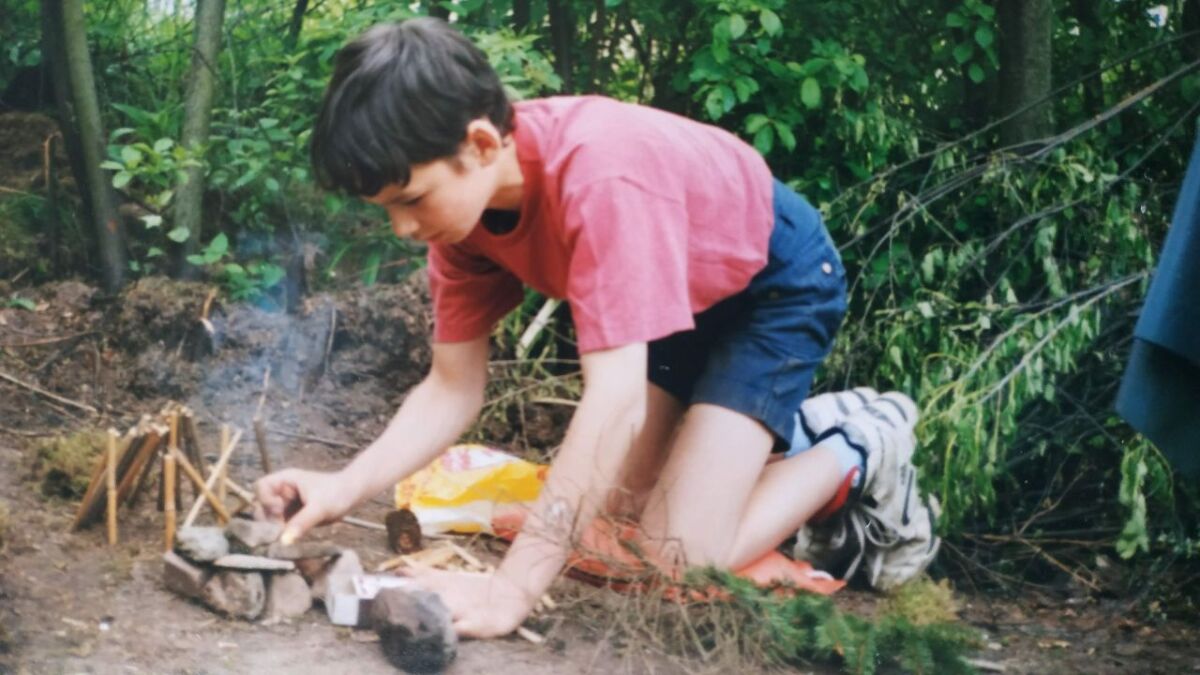
The man's skill and the archaic appearance of the iron completely captivated me.
The other campers were forgotten, and even my grandparents, with whom I spent the summer vacation in the great outdoors, were forgotten.
“How do you do that?” I blurted out curiously.
Until now, I hadn't dared to talk to the strange "hermit" who slept under a simple tarp away from the camping party. But the fascination outweighed my shyness.
The man with the weathered face looked up and smiled mischievously.
"That, my boy, is an old secret that our ancestors already knew. In the wilderness, being able to make fire is essential to survival - even without modern tools."
His words hit me like a bolt of lightning. Suddenly, all of our camping equipment seemed ridiculous and unnecessary. Here was a man who was equipped with the bare necessities and yet moved confidently in nature.
"Can you teach me how to do this?" I asked shyly but hopefully.
The stranger's smile widened.
"If you want, I'll show you a few tricks. But don't tell the other holidaymakers too much about it. Otherwise, everyone will want to do an apprenticeship with me. (he grinned)"
In the following days of camping with my grandparents, I visited the man again and again. He initiated me into the art of making fire and showed me techniques that I would never have thought possible.
This encounter shapes me to this day and has made me the wilderness mentor that I am. I am enthusiastic about passing on my knowledge to nature lovers like you.
If you also would like to discover the fascinating world of making fire without modern tools, then my guide is just right for you.
How can I start a fire without a lighter?
When making a fire without a lighter, you use ignition methods such as a ferro rod, a fire striker, a magnifying glass, or a bow drill. The spark or ember produced is caught in a tinder nest made of moss or grass, which, when blown upon, creates the initial flames.
I hope the question was able to give you a first overview. Let's now dive in.
There are 6 methods with which you can ignite a fire if you do not have matches or a lighter:
- Sparks: You create a fire by producing sparks using a fire striker, flint, or a battery with steel wool.
- Friction: This is probably the most common method of making a fire. You have probably heard of a bow drill before.
- Sun: With this method, you focus the sun's rays into a hot focal point.
- Chemicals: There are several chemicals that burn when mixed. However, I do not recommend this method as it is extremely dangerous.
- Electricity: A battery can create sparks when wired appropriately.
- Pressure: Heat can also be generated through pressure – namely when air is highly compressed, like with a fire pump.
I will now list all methods of starting a fire without matches or a lighter.
At the end, I will summarize them all in a table and indicate how difficult they are to implement and which kindling is suitable.
1. Starting a Fire with a Fire Striker
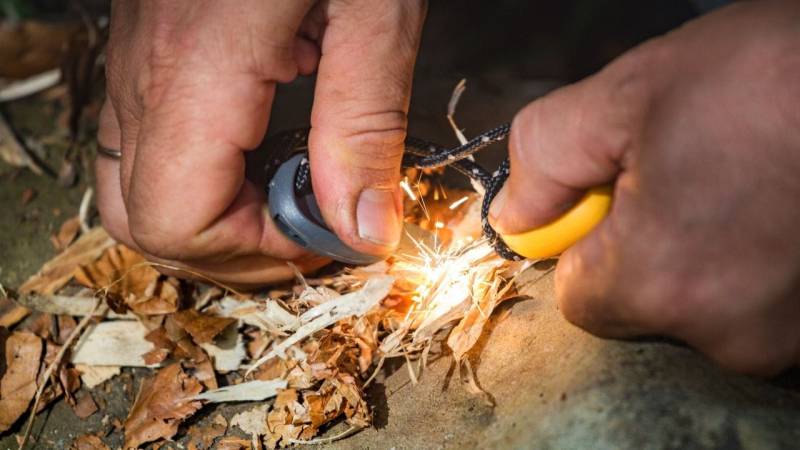
A fire striker is a steel coated with magnesium. To create sparks with it, you also need a metal scraper (can also be a sharp-edged back of a knife).
You can buy fire striker kits (here is my top list for fire striker kits) and follow the following 3 steps to ignite your fire:
- Create a Spark
- Catch the Spark
- Transform this Spark into a Flame
One method that many people use is to place the fire steel directly into the tinder and scrape the fire steel at an angle of 30 to 45 degrees downwards. This scraping creates sparks that concentrate directly on the tinder and ignite it.
However, this method with the fire steel often does not lead to the desired success for beginners.
My two foolproof tricks will show you how to ignite a fire with the fire steel.
Here's a preview, where I make a fire with a fire steel and Fatwood (resin-soaked wood):
Read exactly how to use the fire steel in the article How to ignite a fire easily with the fire steel (instructions + video).
2. Ignite Fire with Magnesium Block
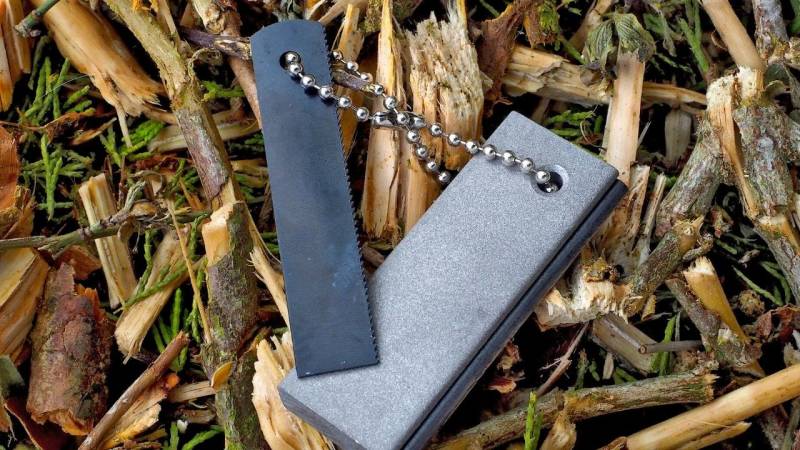
The magnesium block with fire steel works like this:
You scrape shavings off the magnesium block, which are your accelerants or tender. With the accompanying metal rod (a small fire steel), you produce sparks. These sparks then ignite the shavings.
Magnesium burns excellently, very hot, but quickly. It saves you the tinder and ignites the kindling directly, like Feathersticks.
Make sure to scrape off a good pile of magnesium shavings so that your kindling ignites.
In the video, I'll show you how to use the technique with the magnesium block.
Read also
Tinder and Kindling: What's the Difference? (Bushcraft) - Tinder and kindling are both easy to ignite to start a fire. But there are crucial differences to be aware of.
3. Making Fire with a Battery
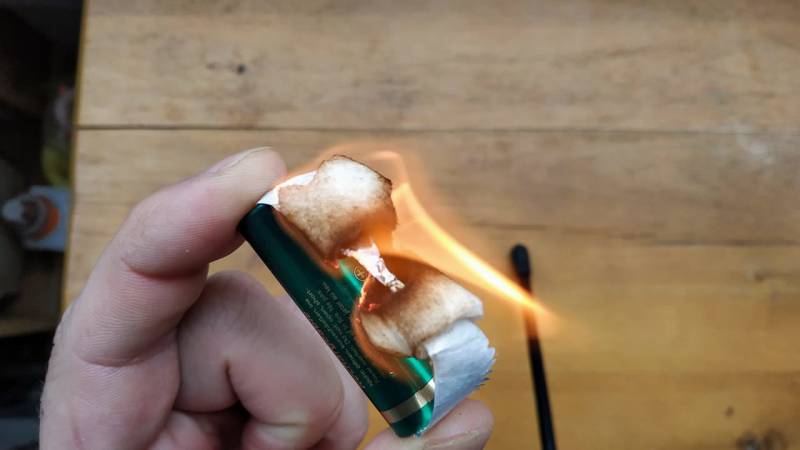
If you have a battery, you can produce sparks with it. The sparks ignite the tinder.
To achieve this, attach a wire to each pole of the battery. When you rub the wires together, sparks are created.
The sparks are perfect for lighting gunpowder.
It is also possible to make fire with a normal AA battery. You just need a gum wrapper.
In my picture tutorial "How to Start a Fire with a Battery", I show exactly how to make fire with it.
Instead of chewing gum paper, steel wool is also perfect.
4. Starting a Fire with a Magnifying Glass or Lens
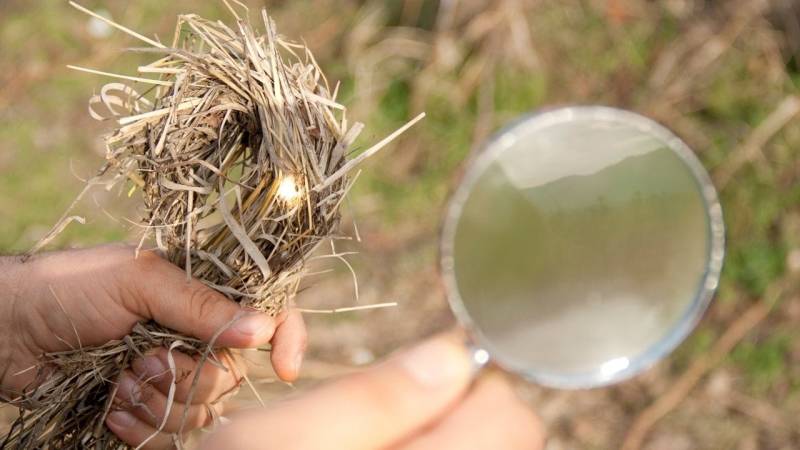
A magnifying glass or lens focuses the light on one point. At that point, it becomes very hot.
You point the point at your tinder until it starts to glow.
If you're skilled and patient, you can even do it with empty glass bottles or shards of glass.
If you're interested in a fitting lens guide, take a look at my guide "Starting a Fire with the Sun: 8 Tips You Need to Know".
5. Starting a Fire with a Bow Drill
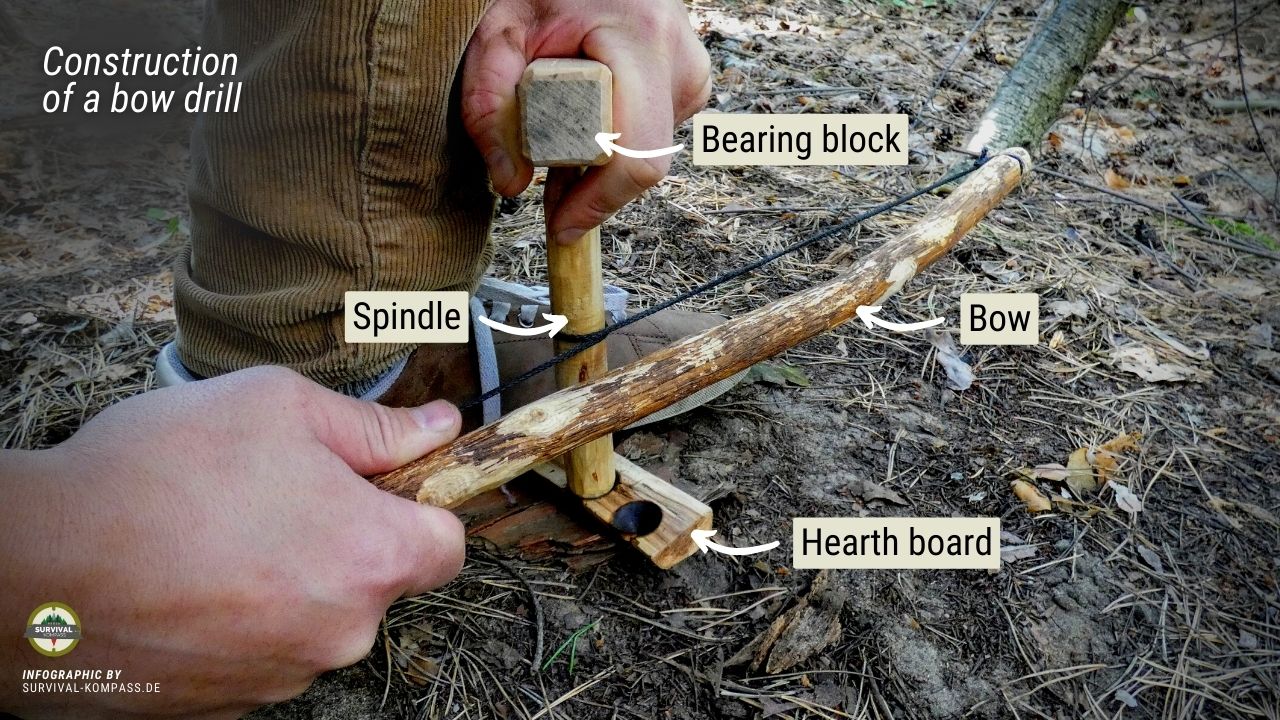
You must be very patient when trying to create an ember with the bow drill. The key to this method is completely dry wood.
You carve a notch into a board and insert the spindle. Then, you turn the stock under pressure – either with your hand or a bow.
Gradually, darker and warm sawdust is formed during the drilling. If you create a fingertip's worth of it, try to slowly blow on it. Increase the sawdust to a nest and then ignite the tinder with it.
In my article "What is a Bow Drill and How Does it Work?" I show you in detail how a bow drill works and how it is built.
6. Making fire with a striker and flint
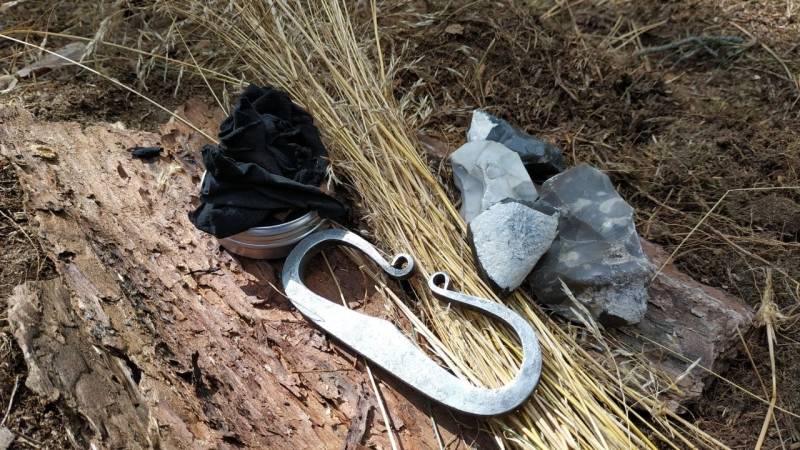
A flint alone cannot ignite a fire. Not even if you strike two flints together. Although sparks are created, they are not hot enough to ignite tinder.
In addition to flint, you also need iron disulfide (FeS2) in the form of pyrite, marcasite, or steel as the second component. This is the material that generates hot sparks.
You strike small shavings from pyrite, marcasite, or steel with the flint. The friction creates heat, which ignites the shavings and turns them into sparks.
The flint is not necessarily necessary for this. Gangue quartz or quartzite is also suitable.
If you want to make fire using steel, the steel must have a high carbon content. 1.5 to 2% is best. A commercial file contains this carbon. Alternatively, a knife made of carbon steel.
Here's a video of me igniting a fire with a striker.
7. Making fire with a fire pump/ember blower
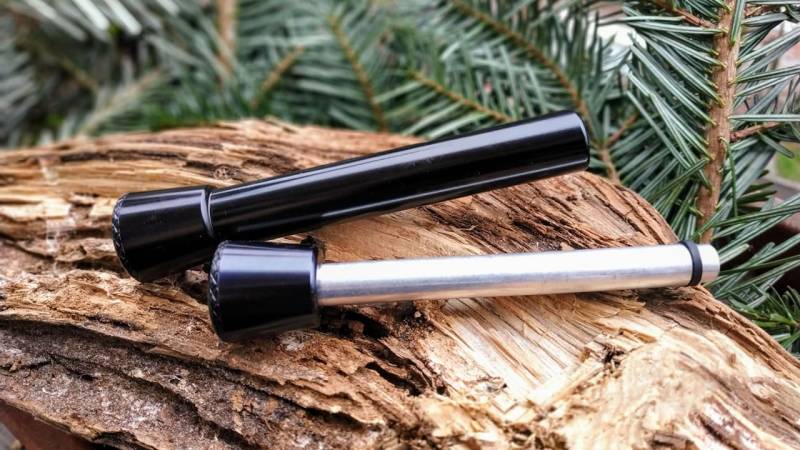
With a fire pump, you can create heat by compressing the piston and cylinder together.
This is the principle behind the diesel engine: The air is compressed and then heated. The fuel inside the cylinder ignites.
The same applies to the fire pump: the compressed air heats up and ignites the tinder.
In my fire pump guide, you will find all the details about this ancient method.
8. Making fire with a plastic bottle

It's hard to believe, but you can create fire with a plastic bottle.
Just like with a magnifying glass, you need sunlight. Fill the plastic bottle with water.
Hold the plastic bottle so that the light is focused into a beam like a magnifying glass. Place the tinder underneath and wait for it to start glowing.
9. Making fire with an ice ball
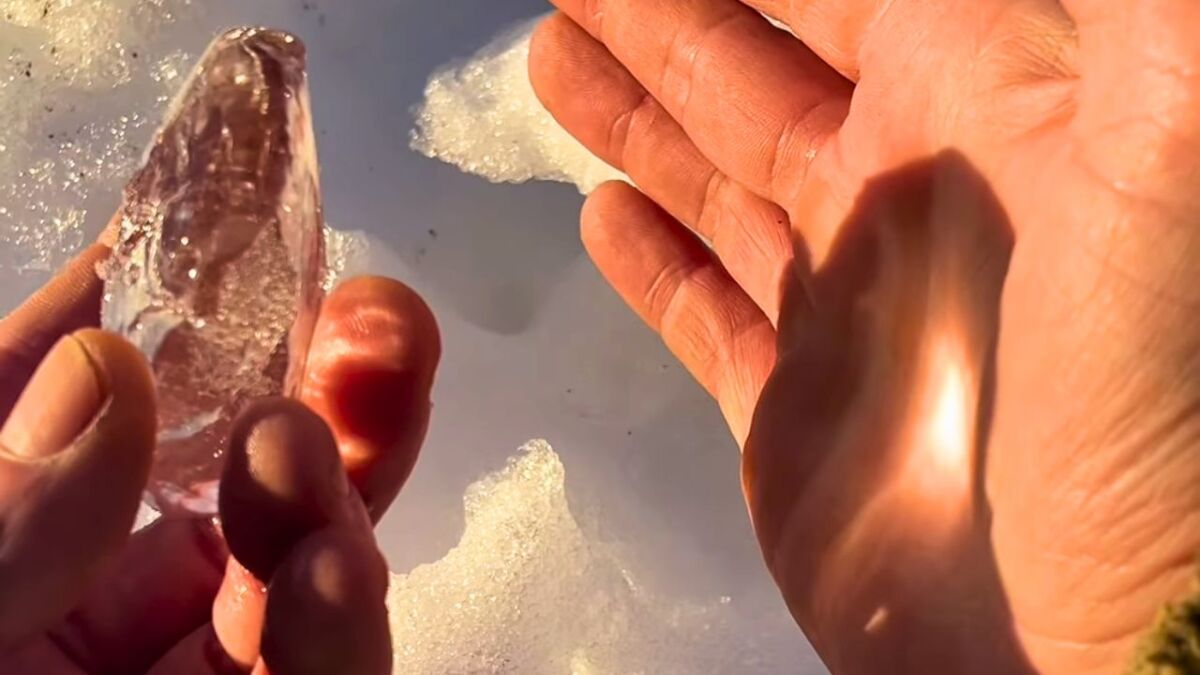
You require sunlight for the ice. You use the ice like a lens.
Find a piece of clear ice and cut it out with a saw. It must not have any cracks or bubbles, so that sunlight can pass through unimpeded.
Then shape it with your hands into a lens or a perfect sphere. Hold the ice lens so that a sunbeam is focused on the tinder. If you hold the ice lens steady, the tinder will start to smoke and eventually glow.
Well, that was the theory. But why this method only works under extreme conditions, you can read here: Debunked: The dangerous misconception about making fire with ice in survival situations
10. Making fire with foil
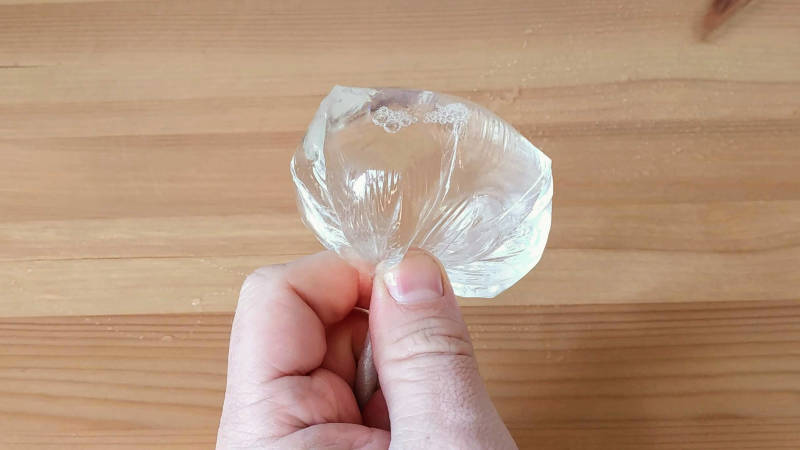
Grab cling film in the size of a DIN-A4 format. Then take all the ends in your hand so that you create a little bag with it.
Fill it with water. Twist the bag at the top so that it's taut. It's important that there is no air left in the water bag and that only a few wrinkles of cling film are visible.
Great, you have just made a collecting lens out of cling film and water.
Then squeeze the water bag into an oval shape and search for the focal point of your lens. Hold the hot point on your tinder.
P.S. You can also use a wine glass, a vase, or even an empty light bulb (watch video here).
11. Making fire with reading glasses or binoculars
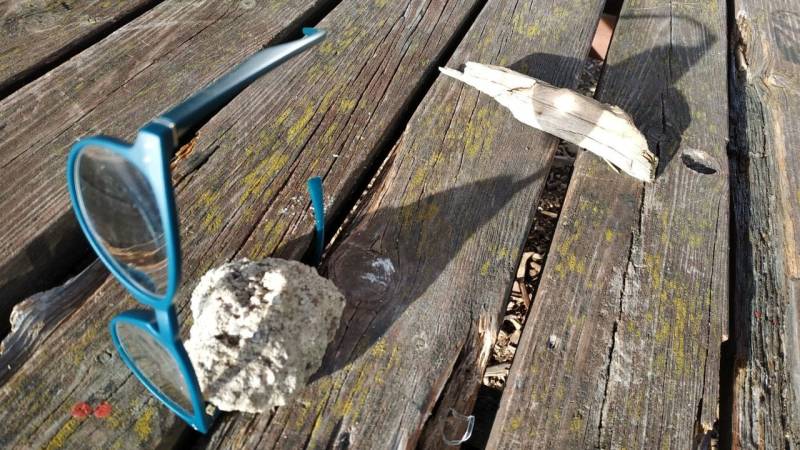
Igniting a fire with reading glasses works just like with a magnifying glass.
You just have to hold the reading glasses further away to find the focal point. The stronger the glasses, the better.
12. Making fire with a concave magnifying mirror
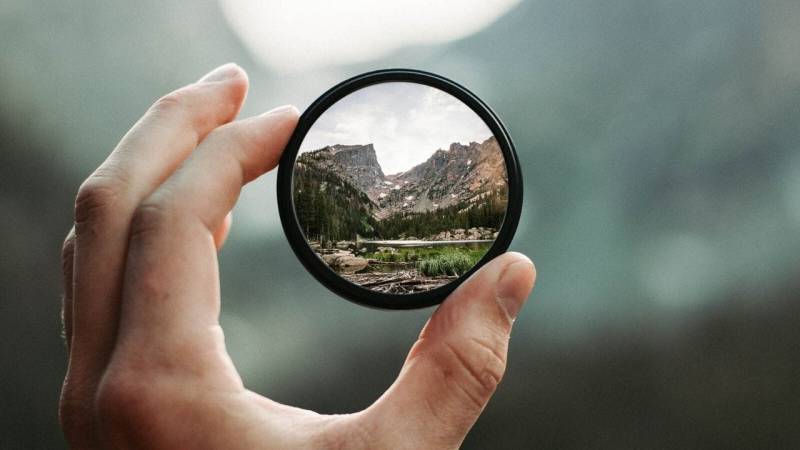
These mirrors are built like a satellite dish, except that the focal point is further away, instead of only a few centimeters away from the object.
The mirror is not as strongly curved as a satellite dish.
Hold the mirror against the sun. Then use your hand to find the focal point (the hottest spot), and hold your kindling above it.
13. Making Fire with a Can
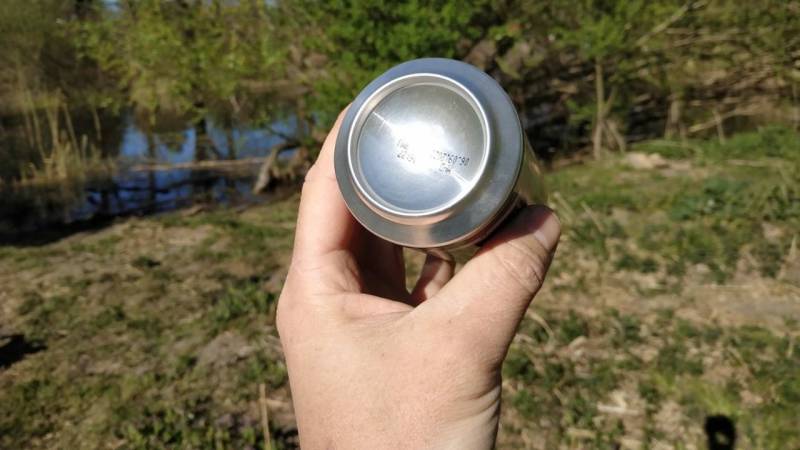
It sounds crazy, but it works: polish the bottom of a drink can with chocolate or toothpaste.
Granted, chocolate and toothpaste are not ideal for polishing, even if you have read it somewhere else.
Proper polishing paste is better, but do you have that in the wilderness?
Polish the bottom of the can until you can see a reflection in it.
Hold the can towards the sun in a way that the sunlight is focused. Hold your kindling 3 to 5 centimeters away from the bottom of the can.
The concentrated sunlight will ignite the kindling.
It is easy to see how to do it in my video.
14. Making Fire with a Metal Spoon
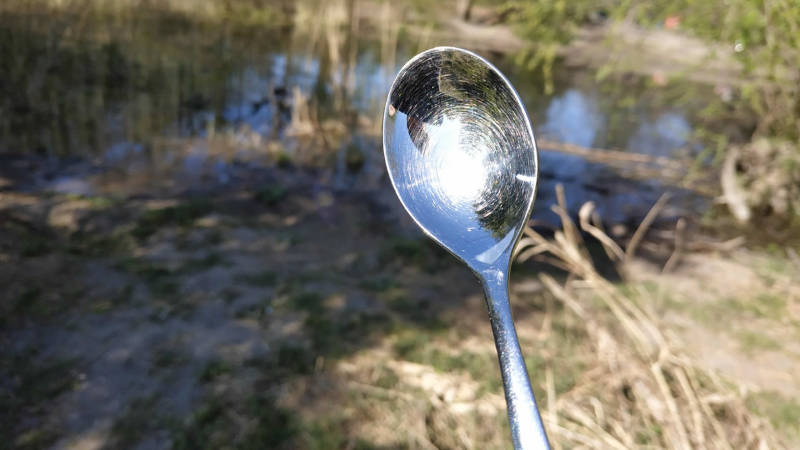
Just like the concave mirror and parabolic can, a metal spoon can also be used to concentrate sunlight.
However, this method requires a bit more skill.
Hold the spoon against the sun. Use your finger to find the focal point, so you immediately know where the hottest point is.
15. Making fire with the fire plow
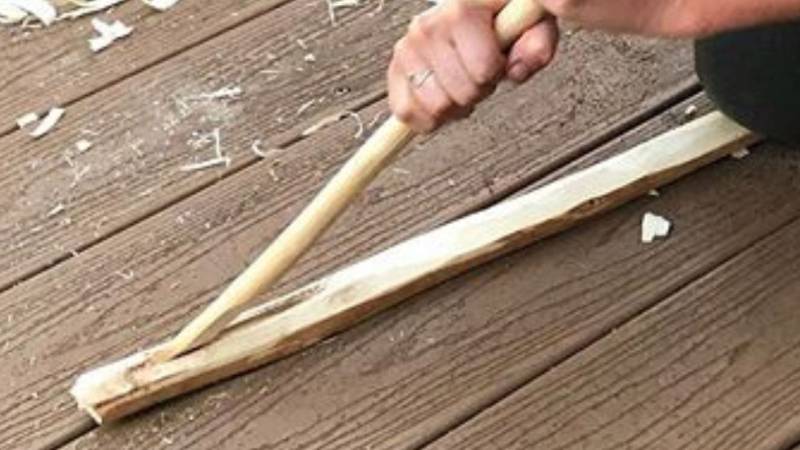
You'll need a flat piece of softwood (poplar, willow, hibiscus, cedar, juniper, yucca, sotol, or other soft wood) with a 15-20 centimeter long groove.
You'll also need the plow: a stick, 1–2 centimeters wide. Carve the tip so that it fits the groove on the wood.
And finally: Hold the plow at a 45-degree angle to the wood. Then move the plow along the groove quickly and for as long as it takes until embers are produced.
16. The Fire Roll / Rudiger Roll – Making Fire with Cotton and Ash
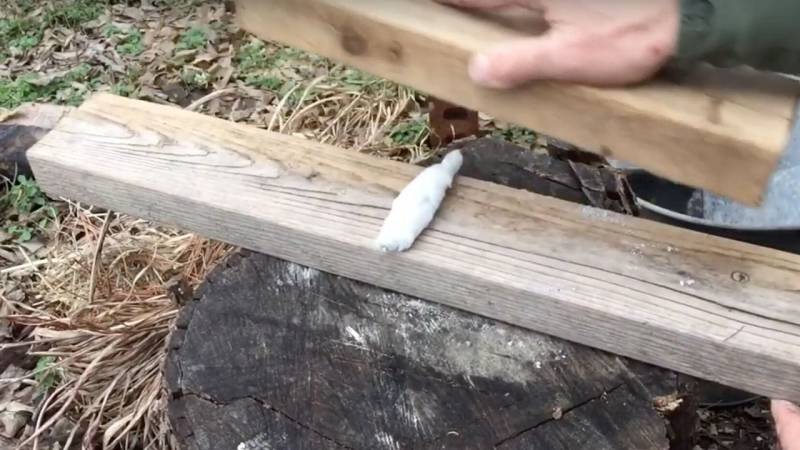
A genius method for making fire, but difficult for beginners.
All you require is a tampon or cotton wool and some ash or scraped charcoal.
You can forget about most of the cotton wool from the drugstore. Tampons, however, are perfect because they are untreated.
Here are the instructions:
- Unravel both tampons without destroying the structure of the fibers
- Place both cotton pads on top of each other
- Sprinkle some ash over the entire width from below (it won't work without ash)
- Tightly roll up the mat from below
- Remember the direction of the roll
- Roll the roll lightly over a board several times
- Only apply pressure in the rolling direction
- The roll will gradually become firmer
- Now take a second board, place it on the roll, and tilt it forward
- Roll the roll back and forth with great pressure at least 200 times
- Only apply pressure when rolling forward (otherwise the roll will open)
Soon you will smell that it smells charred - but keep rolling for another 100 times.
Then cut the roll crosswise where you suspect the greatest heat. Pluck the cotton wool out and blow lightly into the black interior.
If you've done everything right, the first spark will ignite.
Here's my video about it:
17. Making Fire with an Empty Lighter
An empty lighter is a fantastic fire starter.
This method falls under the friction methods of fire making, as there is a tiny flint inside the lighter (often made of ferrocerium, technically not a flint). The flint provides material for the sparks when you turn the sparking wheel.
Here's how:
- Remove the metal casing from the lighter.
- Hold the lighter upside down over the tinder.
- Gently turn the sparking wheel. You would rather not create sparks yet!
- Small ferrocerium shavings fall onto the tinder.
When you have a good pile of ferrocerium shavings (after about 2 minutes), you can now ignite sparks on them. They will ignite.
Note that the ferrocerium shavings only burn for a fraction of a second. You need damn good tinder and have to be quick to ignite your tinder.
18. Making fire with a signal pistol or signal ammunition
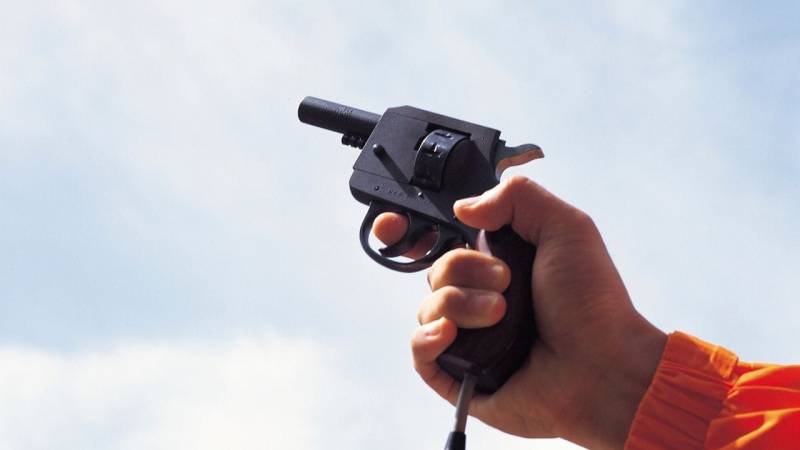
Shoot the cartridge of the signal pistol against a soft object or into a hole in the ground. Then immediately place kindling on it.
It is advisable that you are well-prepared for this method. The glowing signaling compound burns quickly.
Preparation for making fire
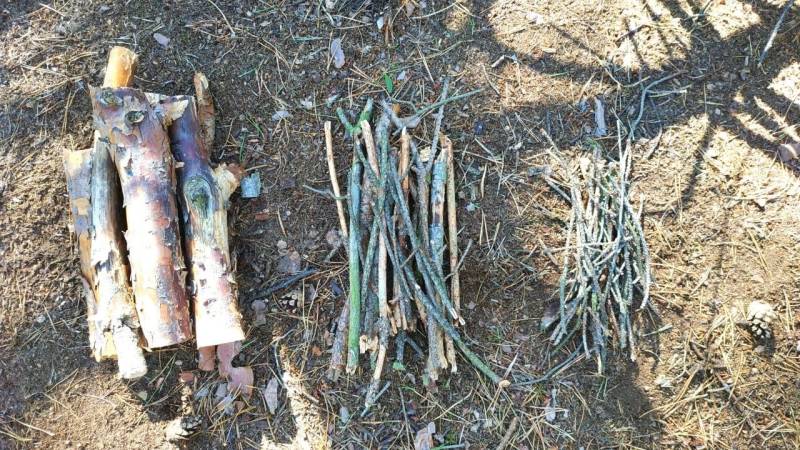
Preparation is everything. As a rule, you can assume that you require 80% of your time to prepare the fire. And you require the other 20% to ignite a fire.
Phase 1: Collecting tinder
Tinder are very fine fibers, for example from birchbark. Tinder must always be very fibrous and bone dry so that it catches sparks well.
My favorites are
You can learn about other types of tinder and how to make your own in my article "Survival Basic Knowledge: Collecting and Making Tinder".
Phase 2: Finding Kindling
These are small wooden sticks that are as thin or thinner than a pencil. Use the wood in the middle of a log and make Feathersticks out of it – it must be bone dry.
Phase 3: Collecting Wood
Collect a supply of wood, so you don't have to leave later. Don't put the wood directly on the burning tinder – even if it's burning great. First, place your kindling from phase 2 on the tinder and continue building the fire.
Once these three fuels are available, you can create your fire.
In my 10-step article "How to Start a Fire?" I show you how to start a fire successfully.
Tips on matches
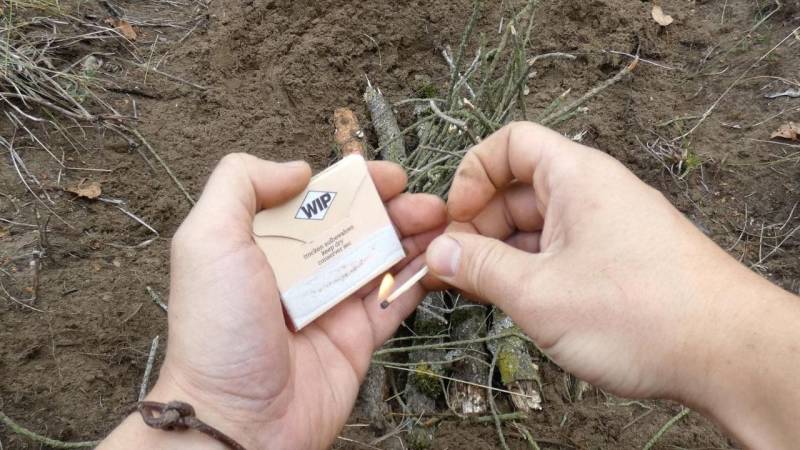
Even though you might know many other ways to start a fire, matches should always be part of your basic equipment.
Pack the matches waterproof, for example in a plastic container or plastic bag. Separate the rubbing surface from the matchbox to save space.
The heads of the matches can be sealed with candle wax. To accomplish this, dip the heads into liquid candle wax.
There are special matches for the wilderness: Storm matches (buy here) or self-made "power igniters" (they are ingenious).
These matches burn particularly long and slow.
Tips for the lighter
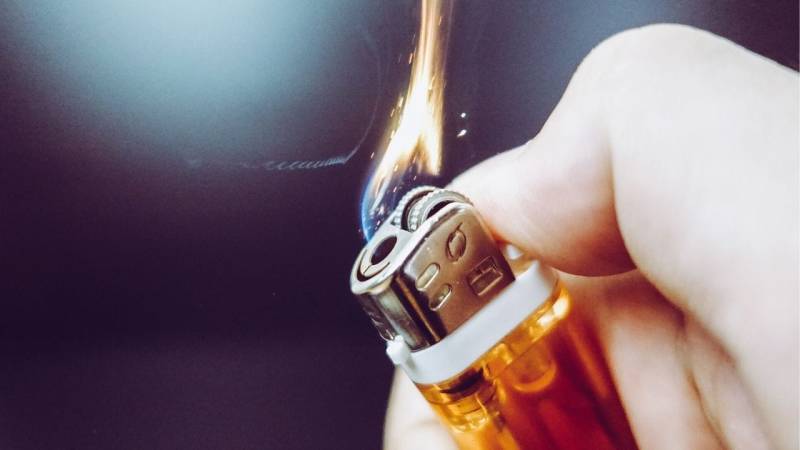
Gas lighters are not as hot as gasoline lighters.
The advantage of a gasoline lighter: cars run on gasoline and in an emergency you can refill your gasoline lighter there.
However, a gasoline lighter runs out faster and gasoline evaporates over time.
Gas fills last longer, do not evaporate, and are therefore the better choice.
When lighting with the lighter, it is advisable to set up a windshield - otherwise it will be empty quickly.
All ignition methods at a glance
So, now you know a lot and hopefully, you are already smarter than before. To help you keep track, I will summarize all methods in a table.
I will also give you an assessment of how difficult the methods are and what tinder you need.
| Ignition method | Type | recommended Tinder by priority | Difficulty |
| Firesteel | Spark | Char Cloth, Birch Bark, Fatwood | easy |
| Magnesium block | Spark | Char Cloth, Birch Bark, Fatwood | easy |
| Battery | Electricity | Steel Wool, Gum Wrapper | easy |
| Magnifying glass / Plastic bottle / Ice sphere / Foil / Reading glasses / Binoculars | Sun | Char Cloth, Punk Wood, Birch Bark | easy |
| Concave mirror / Can bottom / Metal spoon | Sun | Char Cloth, Punk Wood, Birch Bark | difficult |
| Fire bow | Friction | None needed, the abrasion glows | difficult |
| Fire plow | Friction | None needed, the abrasion glows | difficult |
| Flint and steel | Spark | Char Cloth, Charcoal, Charred Cotton | medium |
| Fire pump | Pressure | Char Cloth, Cotton | medium |
| Fire roll | Friction | None needed, the cotton glows | difficult |
| Empty lighters | Spark | Char Cloth, Cotton | medium |
| Flare gun / Signaling ammunition | Chemistry | None needed | easy |
Rules for Fire and Safety Tips
If you are not cautious and do not respect the rules, you can cause a devastating fire. This in turn leads to serious injuries or even a catastrophe.
The main cause of forest fires, according to the forest fire statistics, is human action (if a cause can be determined).
So please be responsible and follow these safety rules and tips, which even beginners should know:
- When starting a fire, make sure there is no strong wind and that there is no dangerous forest fire warning in the area.
- Do not set your fire under hanging branches.
- Surround the pit you dug with stones.
- Remove all roots from the pit.
- A bucket of water and a dirt pile are useful near the fire to put it out.
- Only use wood as fuel.
- Remove everything from the area around the fire to prevent it from spreading.
- Never leave a fire unattended. Continuously monitor the fire.
- When extinguishing the fire, pour a lot of water on it and stir it, then pour more water on it. Always make sure the fire pit is no longer hot. Check with your hand.
Read also how to build, operate and disappear a perfect fire pit.
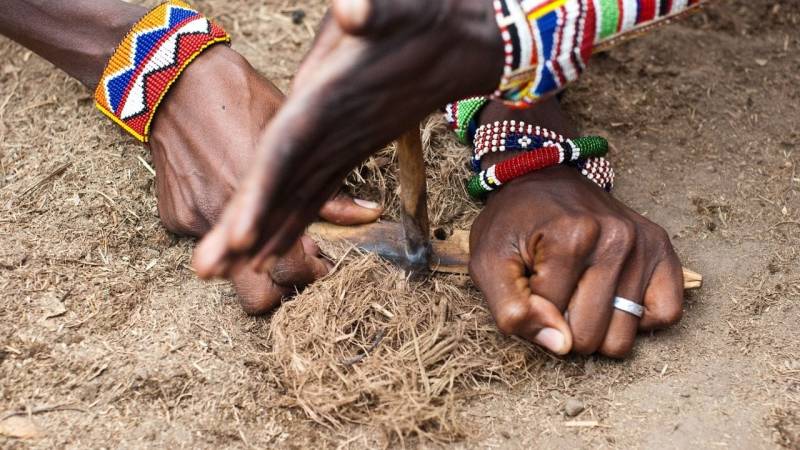
Summary
Starting a fire with a "Plan A" is not difficult. Lighters, matches or Firesteel are always in your luggage.
But what does "Plan B" look like?
What if the everyday igniters and tools, such as lighters and matches, fail?
For the unusual way of making fire, you have to practice and be patient. Often the methods are difficult to handle and more theoretical than practical.
If you practice and really want it, you will also acquire this knowledge.
PS: In the Wildimpuls program (in German), I show you the most important ways to make fire via video.
And now to you: Which method do you like best?
Or: Which method will you try out?


Author of the guide
Martin Gebhardt
Hey, I'm Martin. On my blog, you will learn the basics and numerous details about living in the wild. I think survival, bushcraft and the good life in nature are the keys to happiness. Find me here on Instagram or on YouTube. You can find more about my mission on the About Me page.
Was this guide helpful?
57 people found this guide helpful.
5.00 out of 5 points (57 Ratings)
Comments (0)
This post may contain affiliate links. So if you click on the links and make a purchase, I will receive a small commission at no additional cost to you. Click here, to learn more about it.


